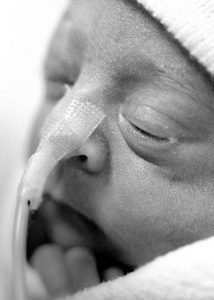Preterm birth may have long-term consequences on emotional wellbeing and behaviour lasting into adulthood. This was found by Pyhälä, Wolford and others and published earlier this year in Pediatrics. In more detail, adults born preterm at very low birth weight reported more internalizing and socially avoidant personality problems, as well as less externalizing problems than those born full term. The results indicate that former severely preterm infants are on average more withdrawn and experience more emotional problems which often manifest as depressive or anxiety symptoms. Also, they express less socially unacceptable behavior such as rule-breaking or intrusive behavior.

The study was carried out as an individual participant data meta-analysis within our international research network called Adults Born Preterm International Collaboration (APIC). APIC is a group of researchers around the world who aim to combine their forces to answer questions related to preterm birth that cannot be answered in any one single cohort study alone.
Now, for the first time, it enabled us to combine adulthood follow-up data on self-reported mental health problems from six preterm cohort studies from five different countries including USA, Canada, Germany, Norway and Finland. The final study sample included altogether 747 adults born preterm and 1512 born at term.
Collaboration and data pooling across several studies offers us an opportunity to overcome some of the limitations that previous studies have had. For example, we have already learned from earlier studies based on nationwide registries that the risk for diagnosed psychiatric disorders is higher among adults born preterm in comparison to those born at full term. Further, a few original cohort studies have indicated that adults born preterm may also themselves report more mental health problems. But registries only include severe disorders diagnosed by medical doctors, and individual cohort studies, in turn, are relatively small which makes it difficult to detect all group differences, for example, whether the effects of preterm birth are different in men and women.

Therefore, this new study specifically adds to our knowledge of those subjective symptoms that may not exceed the clinical threshold or may not have been diagnosed, but may still impair psychological wellbeing, social life and normal everyday functioning. It was also possible to show that these effects of preterm birth were fairly similar among women and men, and among those who were born small in relation to the duration of pregnancy.
Given the emotional and social problems that adults born preterm may experience, supporting their coping skills and peer relationship skills already in childhood may be warranted in addition to the early support for parents. But simultaneously, it is important to note that not all adults born preterm experience mental health problems and most of them do well. Besides being a vulnerability factor, preterm birth may in fact serve as a protective factor in some respect as was demonstrated in their lesser amount of externalizing problems in our study. Therefore, finding the key features to plan timely and targeted preventive interventions to promote long-term resilience in all areas of psychological wellbeing among preterm individuals is an important goal for future research.
/ Elina Wolford & Riikka Pyhälä